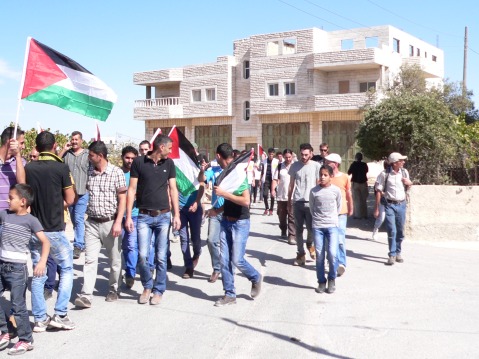Tag: Settlement
-
Seven years of popular resistance in Al-Masara: ‘We want freedom, not aid money’
26th October 2013 | International Solidarity Movement, Khalil Team | Al Masara, Occupied Palestine Yesterday, Friday 25th October, over a hundred non-violent protesters, half of them internationals from more than a dozen countries all over the world marked the seventh anniversary of the popular struggle of the people of Al Masara against illegal Israeli settlements, most notably…
-
Tell your MEPs to support the new guidelines on Israel’s participation in EU programs
12th October 2013 | European Coordination Committee for Palestine | Brussels, Belgium In July 2013, the European Commission announced new guidelines that aim to prevent Israeli projects in illegal Israeli settlements from receiving research grant funding and prevent Israeli companies and institutions that operate inside illegal Israeli settlements from participating in financial instruments such as loans. The…
-
Army intimidate village ahead of an illegal land grab
26th August 2013 | International Solidarity Movement, Nablus Team | Bruqin, Occupied Palestine Today, Monday 26th August, Israeli occupation forces invaded the village of Bruqin in the early hours of the morning. The Israeli army then proceeded to enter twelve houses and arrest 11 young men from the village. The men were aged between 18…



